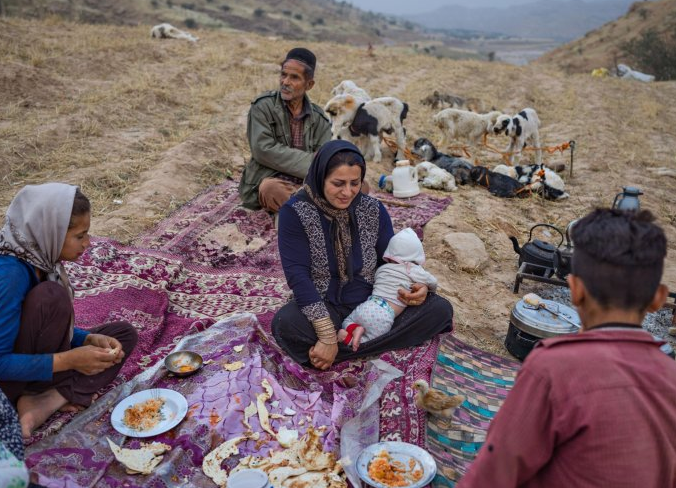As the number of nomads has fallen, the strongest advocates of settling down have been the nomadic women. Their lives are tough, and they know it. Zahra Amiri, 61 and the mother of nine, wakes up at dawn and brings water from a well, a long walk. After that she bakes bread and prepares breakfast. Often she joins her husband while shepherding, milks the sheep, makes yogurt and cheese. Her hands and face are darkened by the sun. If there is any time between chores, she works on a kilim, or carpet. To reach their summer destination, her 24-year-old daughter, Forouzan, rode a horse, guiding her two sisters and eight mules carrying their belongings and a tent.

"After all these years of hard working, I have nothing to show for it, except these children and the sun," Amiri said. "Our only joy is to drink tea." Inheritance laws for nomads are officially no different from those for other Iranians, but in practice women rarely inherit anything. The nomadic custom is that women give away their inheritance rights to their brothers. On the other hand, women are allowed to ride horses and carry guns, and Amiri had both. Many Iranian nomadic men say that milking, getting water, and giving inheritances to women are eib, or improper, for men to do. Marzieh Esmaelipour, 33, said she wouldn't even consider asking for a share of an inheritance. "Everybody will talk bad about you if you do that," she said.












